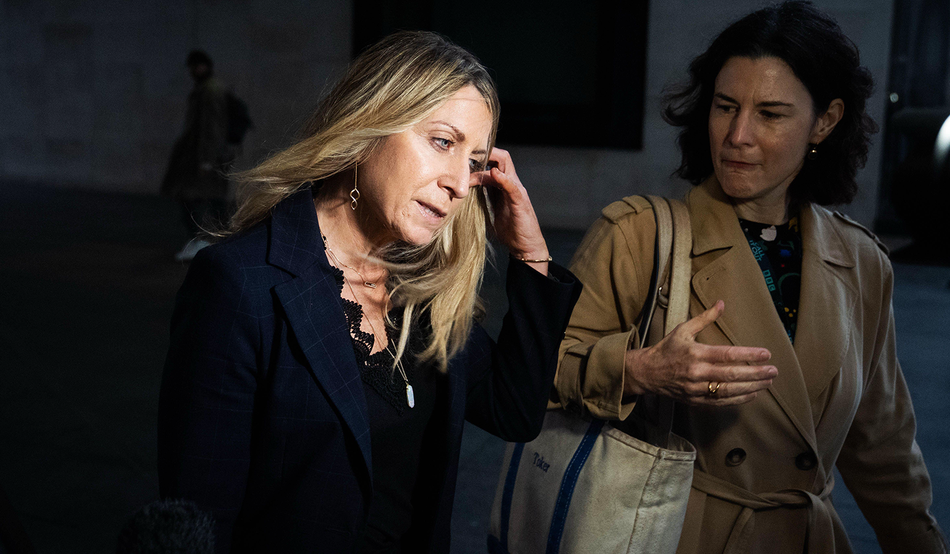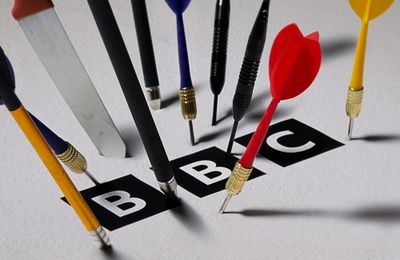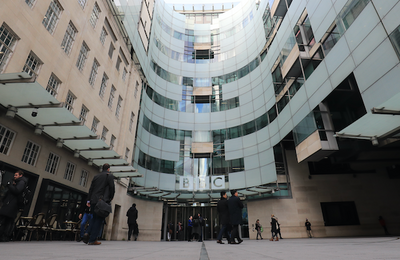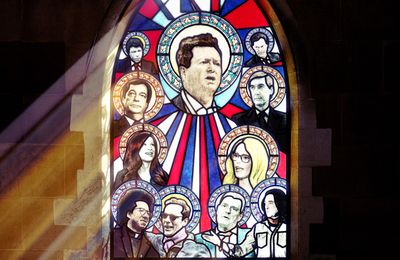So now what? The two most senior BBC executives have walked out of almost impossible jobs. The governance of the organisation is an almost laughable mess. And we’re within four years of the strong possibility of a populist government which would gladly administer the last rites.
Who, given the above, would willingly step into the shoes of Tim Davie and Deborah Turness, the outgoing director-general and head of news? Who has the news chops and sheer backbone to lead one of the greatest news organisations in the world while simultaneously running a £5.4bn international corporation? And who would have their back?
You would never guess from the sometimes hysterical coverage of the past week that the BBC remains quite easily the most trusted news organisation in the UK. In the US, where it recently notched up monthly viewing figures of 77m, it is now the second most trusted news source—just behind the Weather Channel.
None of this matters to its ideological and commercial enemies, who would quite willingly see it wither or die. And the so-called leaked “dossier”—penned by one Michael Prescott, who himself bailed out of journalism 24 years ago in favour of a life in corporate PR—has handed them just the weapon they need.
The killer blow for Davie and Turness was a single bad edit in a Panorama film about Donald Trump broadcast a year ago and now expunged from the BBC iPlayer. Let’s all agree the edit—which conflated two separate parts of Trump’s speech on the day rioters stormed Capitol Hill—was unprofessional and indefensible.
The BBC should have re-edited that part of the hour-long documentary, confessed to the error and republished the programme. They didn’t, and the rest is history.
The botched edit was, in itself, certainly misleading. But the Congressional, Senate and legal authorities that have sat in judgement on Trump’s behaviour that day concluded that he did indeed bear significant responsibility for the insurrection that followed. So no one today should be trying to rewrite the sordid story of what happened that day.
I have just watched the whole programme and, that error aside, it’s precisely the sort of journalism for which the BBC is known and trusted. It foreshadows (and, as it turns out, somewhat underestimates) what a Trump presidency could mean. But it also goes to some lengths to explain his popularity and the reasons why he might well be re-elected.
So it’s not Exhibit A in proving (as Trump’s spokesperson would have it) that the BBC is “100 per cent fake news”. It doesn’t prove that the BBC is, as one excitable Telegraph columnist squealed last week, “wrong about almost everything that matters”. It’s not a good excuse for a former prime minister to urge people to refuse to pay the licence fee.
Prescott rather gave the game away by professing himself “shocked and alarmed” that the BBC didn’t match this Panorama with an equally “aggressive” film about Kamala Harris. That’s his idea of editorial “balance”. Maybe he should stick to corporate PR.
Quite why the BBC was so slow-footed in admitting to its error over Panorama, while defending the rest of the programme, is hard to fathom. BBC sources report that a statement was indeed drafted, but the board refused to sign off on it—thus allowing Trump, Boris Johnson and a small host of BBC haters to fill the vacuum.
The task facing the newish chair of the BBC, Samir Shah, is now immense. He has to appoint a new DG and head of news. He chairs a board with vanishingly small experience of working in journalism in the 21st century. He has to steer through a process of charter renewal. He has to agree with the government on how the BBC will be funded. And he has somehow to future-proof the corporation so that a putative populist government or coalition can’t quietly snuff it out. It is said that Shah has never met Keir Starmer, which tells you something about the prime minister’s priorities.
Why does it matter? We have seen, the world over, that populist and authoritarian leaders move swiftly to diminish or kill off public service media. It suits them to (in the words of Steve Bannon) “flood the zone with shit”, so no one knows who or what to believe.
It suits them to have all the channels of social media to be concentrated in the hands of a few billionaires, who then duly fall in line. It suits them that much of the mainstream news media is economically on its last legs—and that its ownership is concentrated into fewer and fewer hands.
Look no further than the Daily Telegraph, which reported the BBC’s difficulties with such glee last week. One past owner went to jail. The next proprietors—strange and reclusive tax exiles—turned out to be walking bankrupts. For the last two years, the paper has been stuck in purgatory, furiously protesting about the probity of the only people willing to stump up the asking price. From these lofty heights, its writers seek to demolish a funding model which sustains a vast output of local, national and international journalism. And which, according to a recent YouGov poll, beat the Telegraph for trust by a full 22 points.
Or look at the Murdochs, who have been campaigning for years, if not decades, to finish off the BBC. The BBC’s ethical and editorial failings are as nothing to the wild fraudulent and criminal excesses of the past 25 years in Murdochland. Executives going to jail. Literally billions paid out in legal costs and damages. Admissions that they knowingly broadcast lies about Trump’s defeat in 2020. Suspicions, which they naturally deny, that they employed armies of private detectives for commercial and political ends as well as journalistic snooping.
And that’s before we even mention the Big Tech algorithms that promote division, noise, fury and discord over measured, fact-based reporting and analysis.
Trump’s press secretary, Karoline Leavitt, last night gleefully retweeted the president’s charge that Davie and Turner were “corrupt” so-called journalists, and instructed people to watch GB News instead. Nigel Farage would love that.
We have a choice. We can regain a sense of proportion and support the BBC as it tries to dig itself out of its current hole, some of which is undoubtedly of its own making. We could, if we wish, embrace something like the current US media landscape, with its near-collapse into information chaos.
It’s time Keir Starmer started paying attention. His would-be political opponents certainly are.













